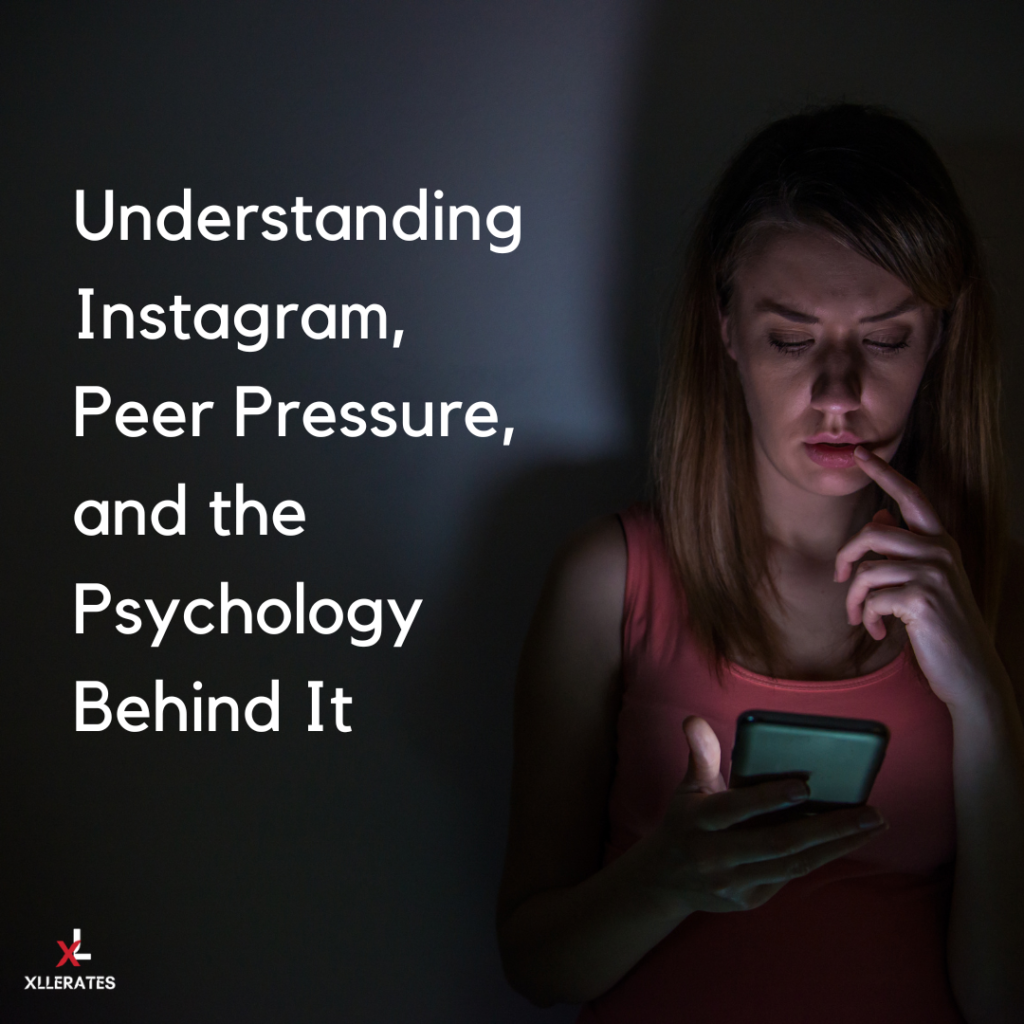
In today’s digitally connected world, social media platforms like Instagram have become an integral part of our lives. With its visually appealing content and extensive reach, Instagram has emerged as a significant influencer in shaping our behaviors, particularly in the context of peer pressure. This blog aims to explore the relationship between Instagram, peer pressure, and the underlying psychological mechanisms that drive this phenomenon.
The Influence of Instagram: Instagram’s popularity stems from its ability to showcase carefully curated images and videos, highlighting the best aspects of people’s lives. The platform promotes an idealized version of reality, often leading to a “highlight reel” effect where users primarily share their successes, achievements, and picture-perfect moments. As we browse through these feeds, it’s natural to compare ourselves to others, which can trigger feelings of inadequacy and a desire to conform to societal expectations.
The Power of Peer Pressure: Peer pressure has long been recognized as a significant influence on human behavior, especially during adolescence and young adulthood. Instagram amplifies this phenomenon by providing a platform for constant comparison and validation-seeking. When users observe their peers engaging in certain activities, displaying certain lifestyles, or adhering to specific beauty standards, they may feel compelled to conform in order to gain acceptance and avoid feelings of exclusion.
Psychological Mechanisms at Play: Several psychological mechanisms contribute to the impact of Instagram-fueled peer pressure. Let’s explore a few key factors:
- Social Comparison: Humans have a natural tendency to compare themselves to others. On Instagram, this comparison becomes more intense, as we often see only the best versions of other people’s lives. This can lead to a negative self-perception and a drive to conform to the ideals presented on the platform.
- Fear of Missing Out (FOMO): Instagram’s real-time nature and the emphasis on sharing experiences can induce a fear of missing out on exciting events or opportunities. This fear drives individuals to partake in activities they might not genuinely enjoy or feel pressured to maintain a certain level of social engagement, even when it becomes overwhelming.
- Validation and Self-Worth: Instagram’s culture of likes, comments, and followers creates a platform for seeking external validation. Users often rely on these metrics to determine their self-worth, leading to a constant pursuit of popularity and approval. The pressure to maintain a certain image can have detrimental effects on mental health and self-esteem.
Managing Instagram-Induced Peer Pressure: While Instagram’s influence on peer pressure is undeniable, it’s crucial to develop strategies to mitigate its negative impact. Here are a few suggestions:
- Mindful Consumption: Be conscious of the content you consume and curate your feed to include diverse perspectives, body types, and lifestyles. Following accounts that promote positivity, authenticity, and self-acceptance can counterbalance the idealized representations.
- Cultivate Self-Awareness: Recognize your own values, interests, and goals. Focus on nurturing your individuality rather than conforming to societal pressures. Regularly remind yourself that everyone’s journey is unique, and comparisons are often unrealistic and unhelpful.
- Limit Screen Time: Establish boundaries around social media use and allocate time for offline activities, such as hobbies, physical exercise, and face-to-face interactions. Creating a healthy balance can reduce the intensity of peer pressure and promote well-being.
- Seek Support: Share your feelings with trusted friends, family members, or mental health professionals. Discussing your experiences can provide valuable perspective and support, helping you navigate the challenges posed by Instagram-induced peer pressure.
Conclusion: Instagram’s influence on peer pressure is a complex issue deeply rooted in human psychology. By understanding the psychological mechanisms at play and adopting mindful strategies, we can minimize the negative impact of Instagram and foster a healthier
